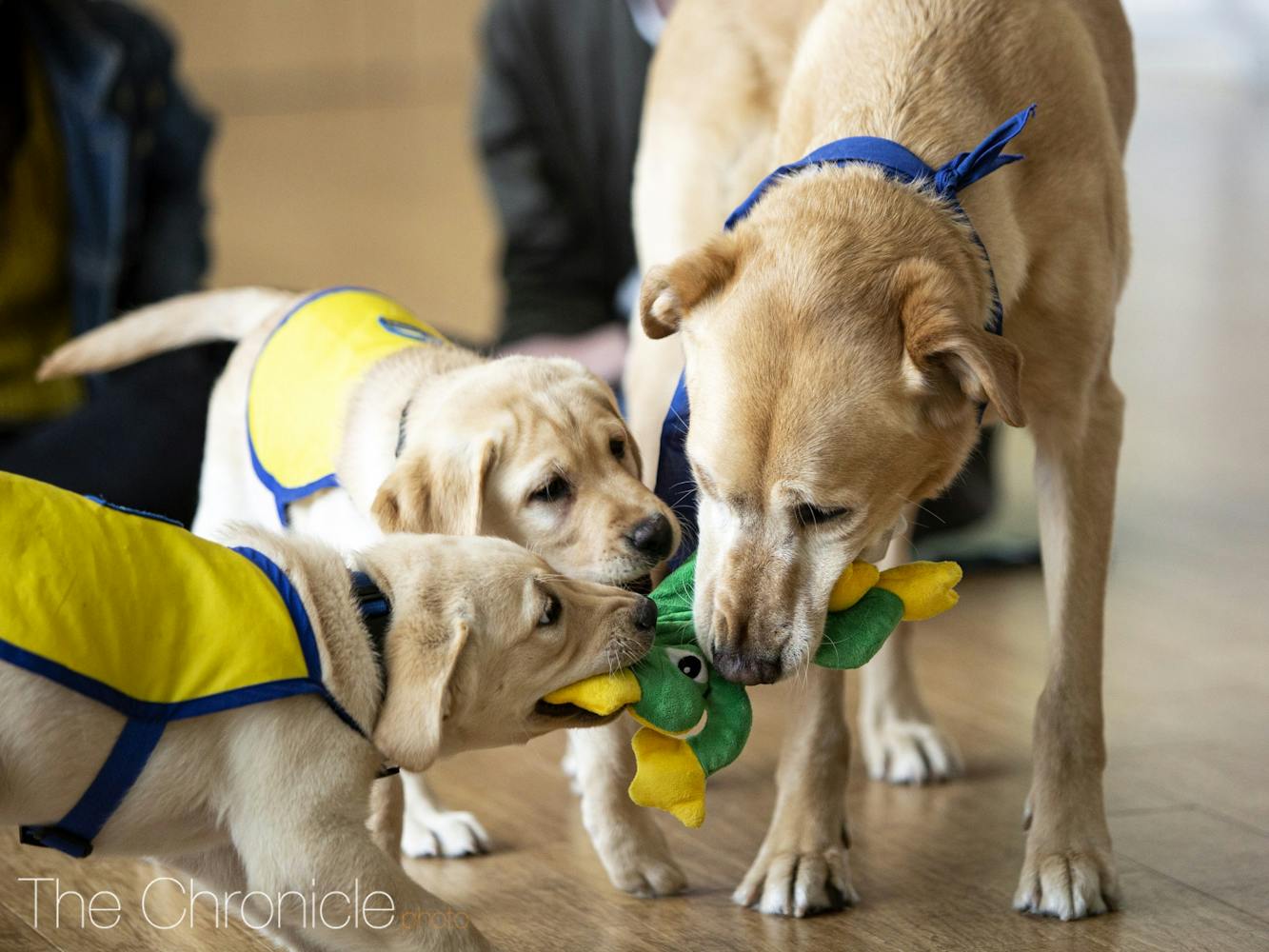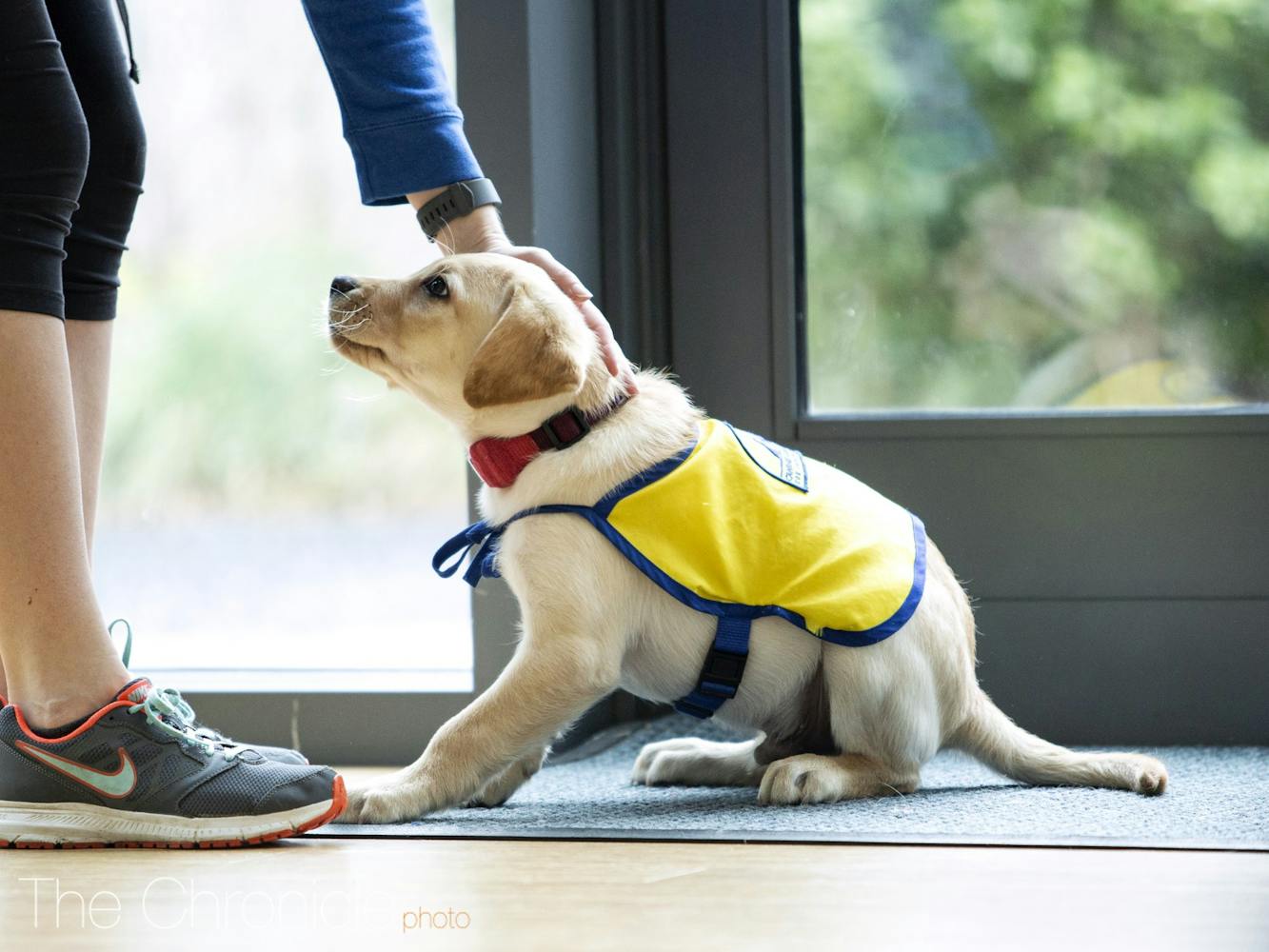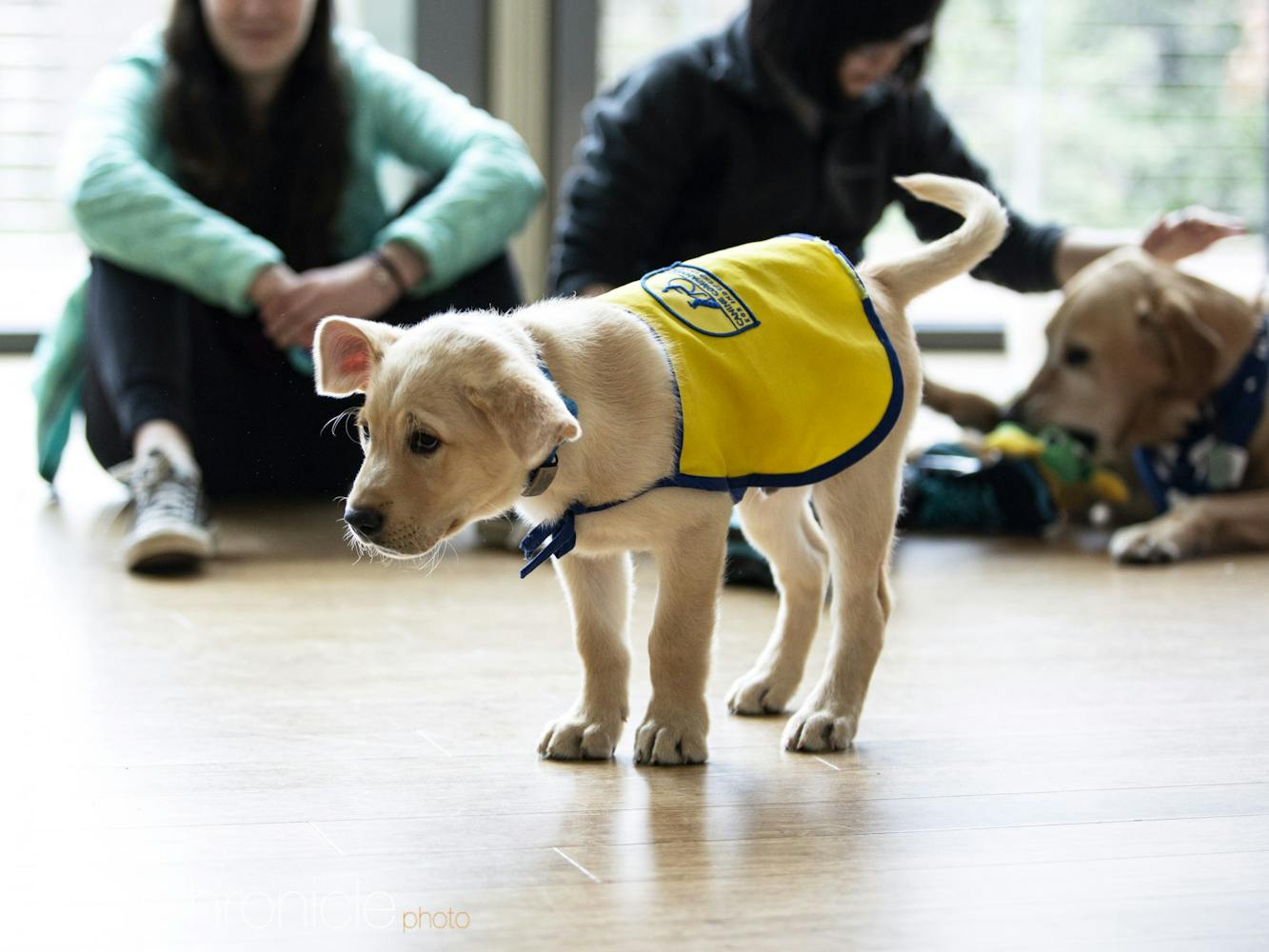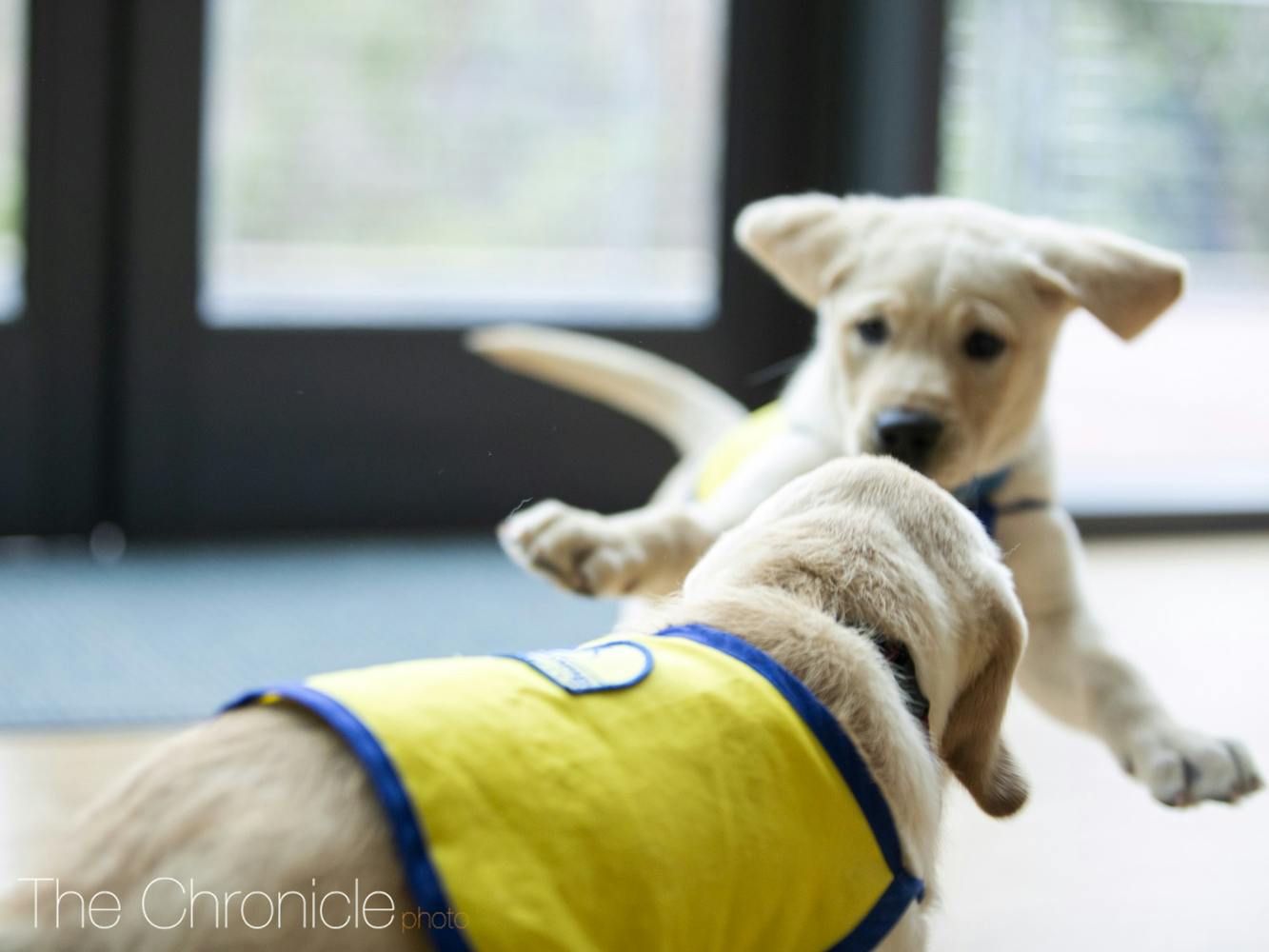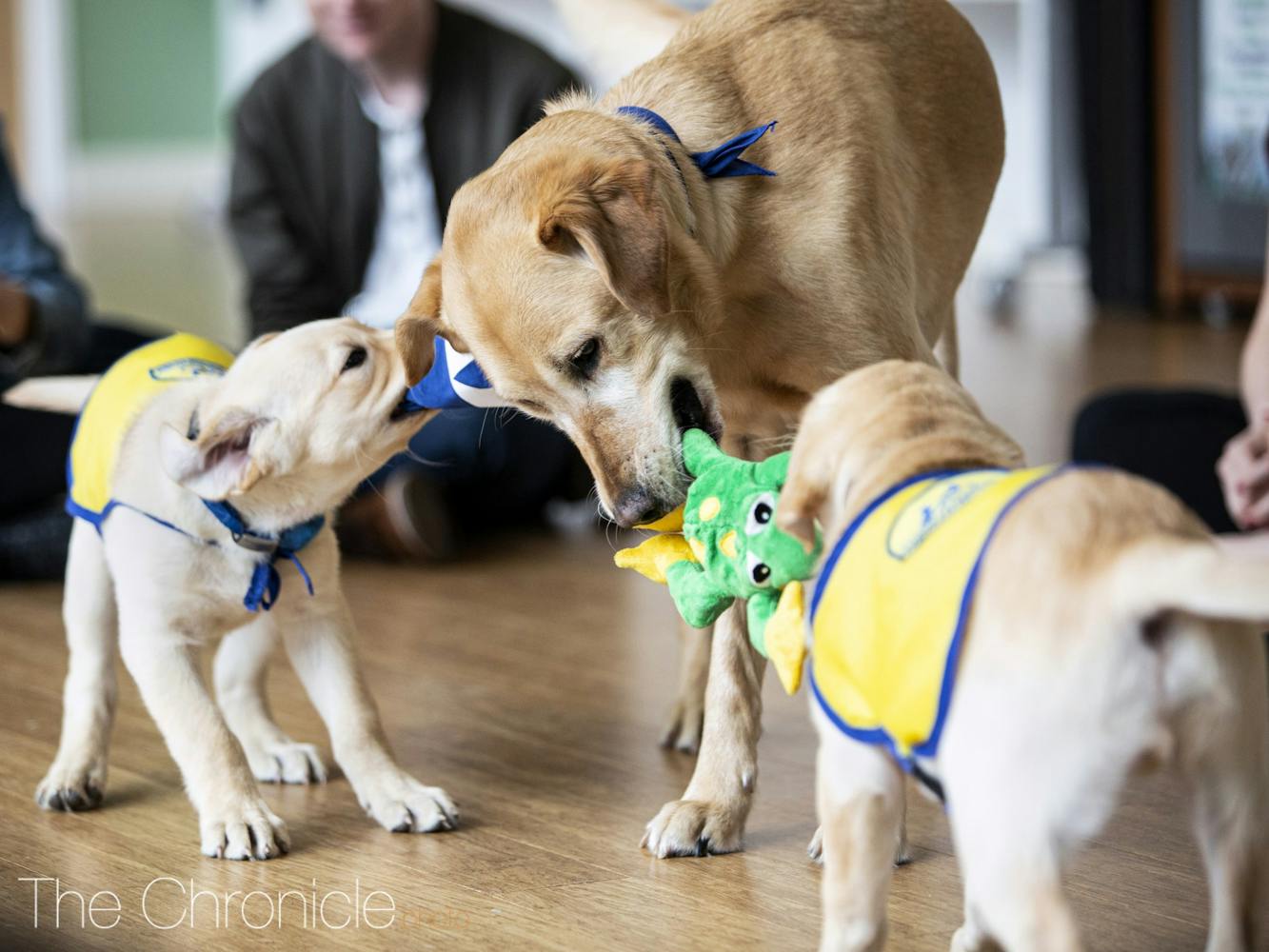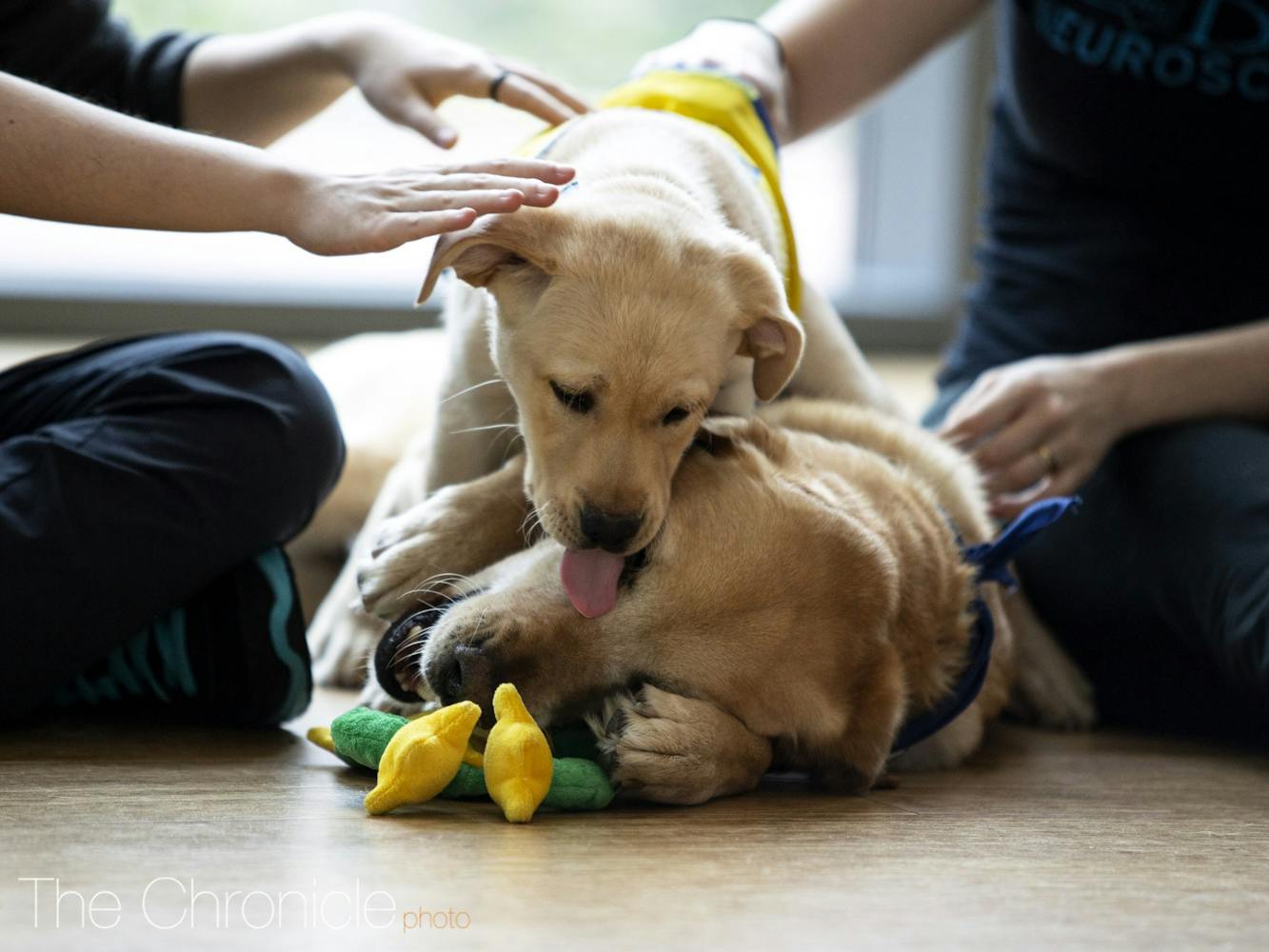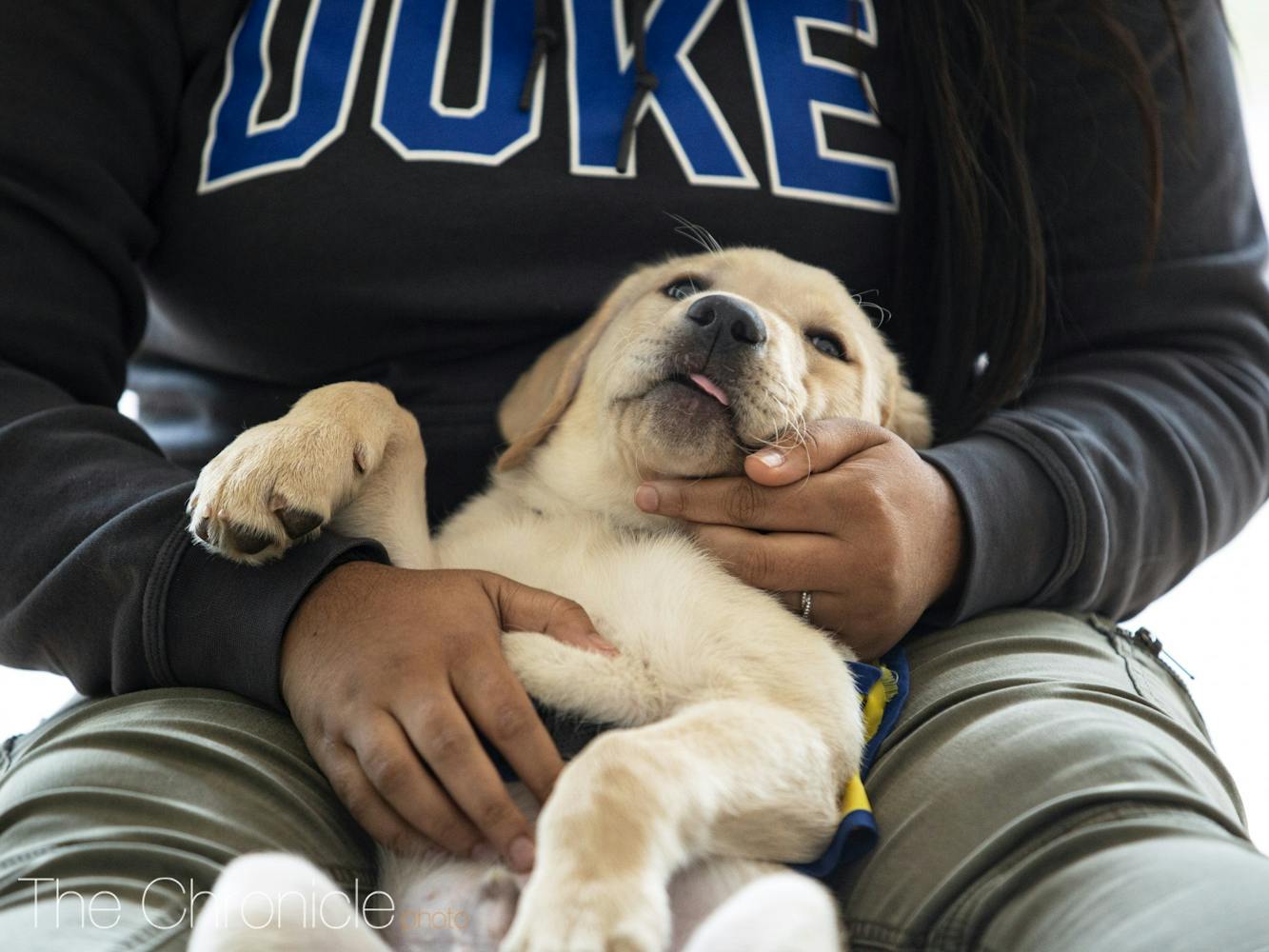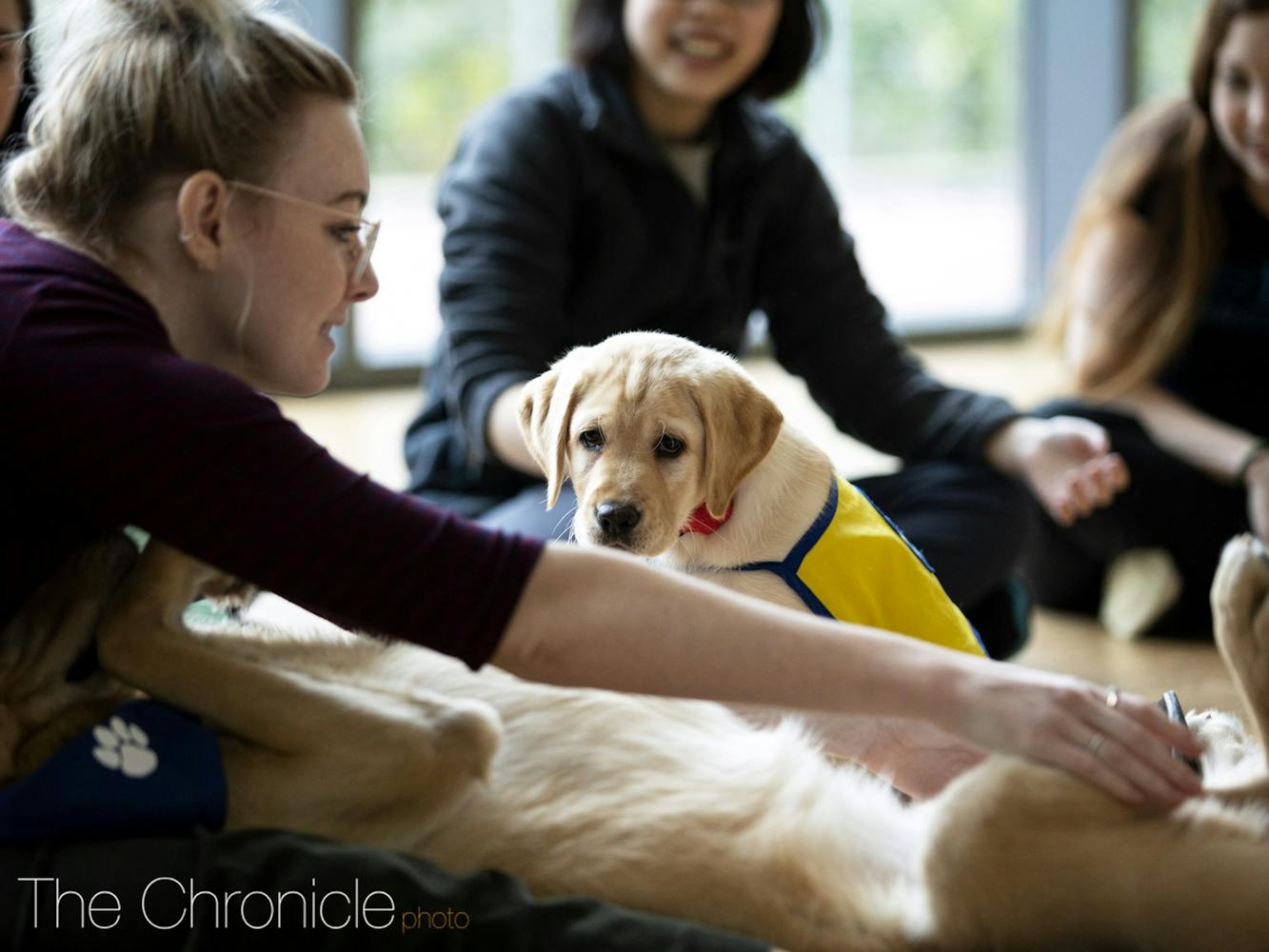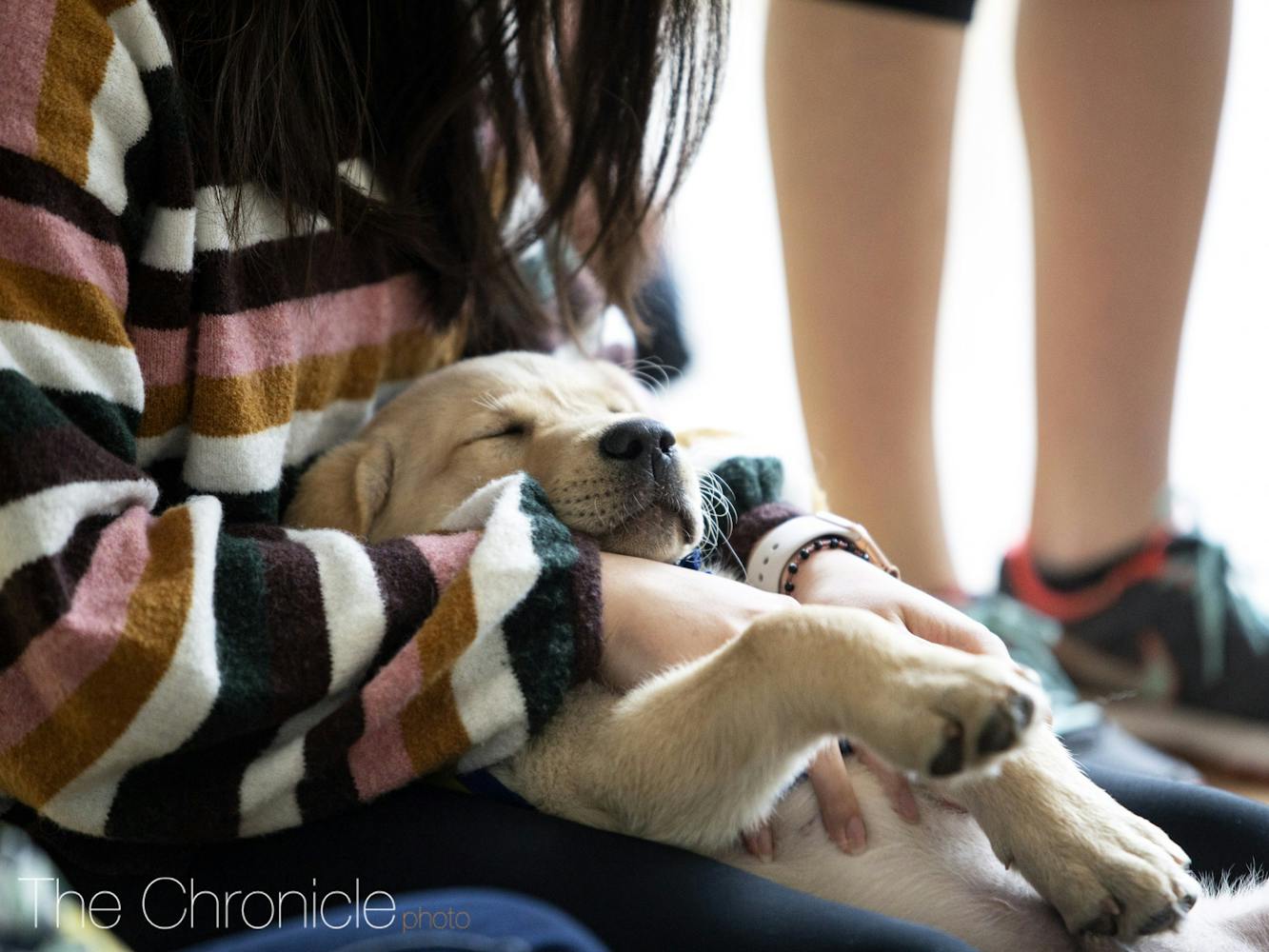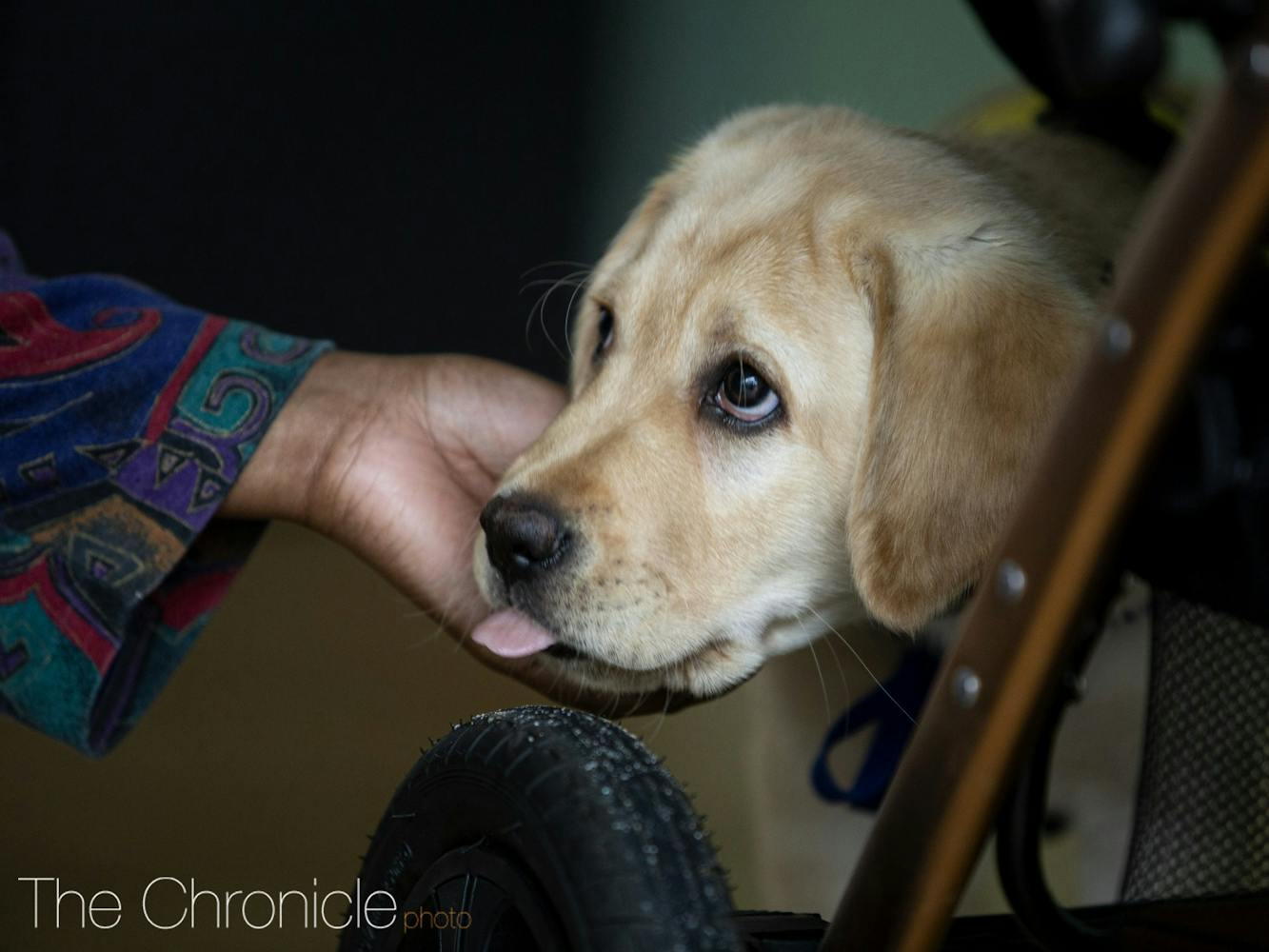This story was written before residential activities were canceled for the semester. According to Vanessa Woods, the puppies were sent to their homes early, and the center has put research on hold but hopes to resume at the beginning of Fall 2020.
Duke Canine Cognition Center’s puppy kindergarten offers a place where anyone can pop in for cuddles and sloppy puppy kisses—but it wouldn’t be possible without its 107 volunteers.
Volunteers at the puppy kindergarten set aside two two-hour chunks of time each week to feed, walk and play with the center’s seven puppies.
The puppy kindergarten operates on limited grant money from the National Institutes of Health, according to Vanessa Woods, a research scientist in evolutionary anthropology. The lab enrolls seven to 10 new puppies each semester, and the goal, she explained, is to determine the cognitive skills that can make puppies better service dogs as adults.
The lab only has a handful of full-time faculty members, Woods added, so it wouldn’t be possible without the help of its many volunteers.
“Looking after puppies is really something where you need to be intrinsically motivated,” she said.
The puppy kindergarten has 107 volunteers—six graduate students, four faculty and staff members and 97 undergraduate students. Of the undergraduates, 32 are first-years, 32 are sophomores, 17 are juniors and 16 are seniors. Only 21, less than a fifth of the volunteers, identify as male.
Woods said that about 80% of volunteers from this fall elected to continue their work with the puppy kindergarten in the spring. Volunteers’ jobs vary by shift and include waking puppies, putting them to sleep, taking puppies to the hospital and feeding them, she explained.
Senior Kate White is in her second semester of volunteering at the puppy kindergarten. She works the 11:30 a.m. to 1:30 p.m. shift twice a week, and she said that a large portion of her job involves separating the puppies when they fight with each other.
White said that she takes time out of her week to volunteer at the puppy kindergarten because it brightens her day.
“They’re so cute and so fun, and I love watching them grow,” she said.
White said that her position doesn’t bring her extra stress, but provided her with a break during the Fall semester, when she was “much busier” than in the Spring.
Woods said that many of the puppy kindergarten volunteers have reported to her that “looking after puppies is incredible for both meeting new people and their mental health.”
“You can’t walk a puppy and pick up their poop while you’re on your phone or laptop,” said Woods. “It’s this incredibly mindful activity for them.”
First-year Malenie Reyes is also a returning volunteer. Reyes said that she decided to volunteer when she saw a Facebook post about the puppy kindergarten this past summer.
“Listen, puppies and college? Like, that’s not really normal! So, I was looking for an excuse to be able to see them more often,” Reyes said.
Her work at the puppy kindergarten is a source of stress relief, she added. Despite the sizable time commitment, she said that she consistently looks forward to her shifts.
Reyes plans on continuing to work with the puppy kindergarten next year, and hopes to become a dorm volunteer.
Woods explained that there are four “dorm puppies,” each with a team of three student volunteers. The puppies rotate rooms every two nights, and dorm volunteers are responsible for picking the puppies up at night and dropping them back at the lab in the morning, she said.
Although it’s too early to tell whether puppies hosted in the dorm perform differently on their cognitive tests, Woods said that the pilot puppy who stayed in students’ rooms last semester was “a champ” and “the most loved puppy in the world.” Next semester, the puppy kindergarten hopes that all puppies will spend the night in dorm rooms.
Neither White, a civil engineering major, nor Reyes, who is undecided, said that they frequently engage with the Canine Cognition Center’s research. Both expressed, however, that the research is made readily available to student volunteers in case they are interested in further engagement.
Woods told The Chronicle that she was initially unsure of the level of commitment that already-overcommitted Duke students would be willing to take on at the puppy kindergarten, but her fears weren’t realized.
“What we found is that Duke volunteers are incredible,” she said. “They show up for every shift. They’re always on time. They don’t drop out. They are so caring.”
Correction: This article was updated to reflect that the Duke Canine Cognition Center hopes to start research starting at the beginning of Fall 2020, not Spring 2020 or 2021. The Chronicle regrets the error.
Get The Chronicle straight to your inbox
Signup for our weekly newsletter. Cancel at any time.

Anna Zolotor is a Trinity senior and recruitment chair for The Chronicle's 118th volume. She was previously news editor for Volume 117.

